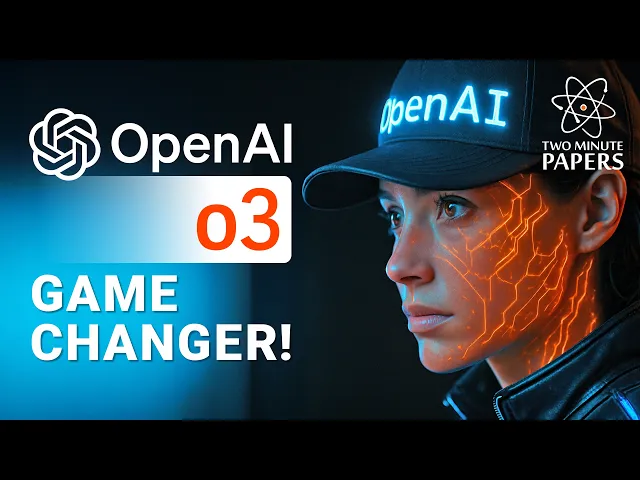OpenAI’s ChatGPT o3

ChatGPT o3 reshapes what AI can actually do
In a significant leap forward for artificial intelligence, OpenAI has unveiled ChatGPT o3, showcasing capabilities that push well beyond what we've come to expect from AI systems. The new model doesn't just think with text—it thinks with images, remembers conversations over time, and demonstrates problem-solving abilities that approach genuine research capabilities.
Key developments in o3's capabilities
-
Multimodal reasoning with images: The model can now analyze images with remarkable precision—reading barely visible signs, identifying film locations, finding Waldo in a crowded scene, and even determining guitar chords from photos.
-
Enhanced memory and personalization: O3 retains information from previous conversations and uses it to provide personalized recommendations and learning pathways, effectively becoming a thoughtful tutor tailored to your knowledge gaps.
-
Significant cognitive improvements: The model has jumped from scoring 8% to nearly 25% on "Humanity's Last Exam"—a collection of questions specifically designed to be unsolvable by AI at the time of creation—representing a threefold improvement in just months.
Breaking the knowledge barrier
Perhaps the most significant development is o3's apparent ability to push beyond what I call the "knowledge ceiling" of AI. Previous models were limited to information contained within their training data—essentially regurgitating human knowledge in new combinations. O3 demonstrates an ability to work through incomplete research papers and derive conclusions that weren't explicitly provided, suggesting it might be capable of genuine discovery.
This shift matters immensely as it potentially transforms AI from a tool that enhances human productivity to one that independently advances human knowledge. If these capabilities continue developing at the current pace, we could see AI making autonomous contributions to drug design, sustainable agriculture, clean energy, and longevity research within years rather than decades.
What OpenAI isn't telling us
While the capabilities shown are impressive, there's significant opacity around o3's development and benchmarking. Unlike academic research, which undergoes rigorous peer review, many of OpenAI's claims about o3's intelligence remain unverified by independent researchers. Claims about "genius-level IQ" should be approached with healthy skepticism until independently verified.
Additionally, the demonstrations shown likely represent optimal outcomes rather than typical performance
Recent Videos
How To Earn MONEY With Images (No Bullsh*t)
Smart earnings from your image collection In today's digital economy, passive income streams have become increasingly accessible to creators with various skill sets. A recent YouTube video cuts through the hype to explore legitimate ways photographers, designers, and even casual smartphone users can monetize their image collections. The strategies outlined don't rely on unrealistic promises or complicated schemes—instead, they focus on established marketplaces with proven revenue potential for image creators. Key Points Stock photography platforms like Shutterstock, Adobe Stock, and Getty Images remain viable income sources when you understand their specific requirements and optimize your submissions accordingly. Specialized marketplaces focusing...
Oct 3, 2025New SHAPE SHIFTING AI Robot Is Freaking People Out
Liquid robots will change everything In the quiet labs of Carnegie Mellon University, scientists have created something that feels plucked from science fiction—a magnetic slime robot that can transform between liquid and solid states, slipping through tight spaces before reassembling on the other side. This technology, showcased in a recent YouTube video, represents a significant leap beyond traditional robotics into a realm where machines mimic not just animal movements, but their fundamental physical properties. While the internet might be buzzing with dystopian concerns about "shape-shifting terminators," the reality offers far more promising applications that could revolutionize medicine, rescue operations, and...
Oct 3, 2025How To Do Homeless AI Tiktok Trend (Tiktok Homeless AI Tutorial)
AI homeless trend raises ethical concerns In an era where social media trends evolve faster than we can comprehend them, TikTok's "homeless AI" trend has sparked both creative engagement and serious ethical questions. The trend, which involves using AI to transform ordinary photos into images depicting homelessness, has rapidly gained traction across the platform, with creators eagerly jumping on board to showcase their digital transformations. While the technical process is relatively straightforward, the implications of digitally "becoming homeless" for entertainment deserve careful consideration. The video tutorial provides a step-by-step guide on creating these AI-generated images, explaining how users can transform...
